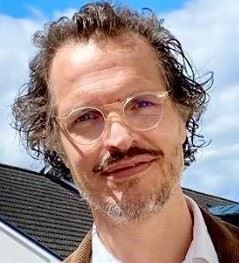|
POUL PERRIS

Honorary
Life Membership approved by the ISST General Membership Assembly October 2020
Poul Perris, MD is the director of the Swedish Institute for CBT & Schema Therapy located in Stockholm, Sweden. The institute is a private training center with University status that offers psychotherapy training programs at various professional levels, combined with a clinical outpatient setting.
Poul served as the President of the Swedish CBT association from 2010-2016 and has contributed to making Schema Therapy an integral part of national mental health services in Sweden.
Poul was trained and supervised in Schema Therapy by Jeffery Young in early 2000. In 2006 Jeff, Poul and a small group of colleagues organized, in Stockholm, the first international conference in Schema Therapy (with about 50 participants) with the aim of establishing a unified international body for schema therapy training and research. Their work resulted in the founding of the ISST in 2008 at the next Conference held in Coimbra, Portugal. Poul was elected the first President of the ISST and served on the Executive Board from 2008-2010.
Poul has continued to serve the ISST in various ways. Together with Gerhard Zarbock he founded and co-chaired the ethics committee (then called the Current Conflicts and Concerns Committee). Poul is still active on our current Ethics and Conflict Resolution Committee but no longer serves as the chair. He has been an active member on the Schema Therapy for Couples (ST-C) committee since 2014 where he contributed to the development of the ST-C training curriculum and ST-C therapist rating scale. He has been a member of the Case Conceptualization Committee since 2016 and has contributed to the development of the new case conceptualization form required in the certification process for individual Schema Therapy.
Poul has been teaching and supervising cognitive behavioral therapists and schema therapists internationally for over a decade. He is a certified schema therapy trainer for both individual and couples and his Institute has been offering ISST approved training for certification since 2005. In Sweden the title psychotherapist is protected and a person who desires to become a psychotherapist has to undergo basic training (12 years) and specialized psychotherapy training (additional 3 years) before being able to apply for a psychotherapy license. The two major psychotherapy orientations are psychodynamic therapy and Cognitive-Behavioural Therapy (CBT). Poul and his group have integrated Schema Therapy into the CBT psychotherapy licensing program and train about 150 students a year. His institute also offers Schema Therapy training programs at basic and advanced level for both individual ST and for ST-C.
Poul specializes in the treatment of personality disorders, and in couples therapy for complex relational problems. As you can see from his publications listed below, Poul has co-authored a handbook on Schema Therapy in Swedish, as well as several book chapters on working with couples and core emotional needs.
Poul is committed to bring Schema Therapy to the attention of the general public and, to this end, has been involved in several productions for Swedish National Televison that promote the schema therapists understanding of the centrality of core emotional needs, what happens when they are not met, and the schema mode model.
- In 2012 he treated 6 authentic couples with ST-C. All sessions were filmed and later edited into 6 episodes that were aired on Swedish National TV.
- In 2014, prior to the Swedish general election, Poul conducted interviews on National TV with the leaders of all Swedish political parties, including the Swedish Prime Minister, focusing on their how their personal childhood experiences had influenced the development of their core values. There were 6 of these broadcasts, each of one hour.
- In 2018 Poul provided group therapy for young adults of the internet generation working as “influencers”, that were suffering from mental health problems. The focus was on helping them (and the viewers) to build a deeper understanding of emotional needs, and the psychological consequences of being trapped in default coping modes. The aim was to raise awareness of the dangers of constantly trying to please the expectations of a western culture that is strongly focused on values like success, status and achievement, at the expense of empathy, care and guidance. All sessions were filmed and later edited and aired on Swedish National TV in a series of six broadcasts of 30 minutes each.
Publications
Atkinson, T., & Perris, P.(2020). Schema therapy for couples: Interventions to promote secure connections. In G. Heath, & H. Startup (Eds.), Creative Methods in Schema Therapy: Advances and Innovation in Clinical Practice Paperback (pp. 210-224). Routledge.
Gyllenhammar, C. & Perris, P. (2016). Schematerapi en klinikers handbok och en terapiberättelse. Natur och Kultur.
Lockwood, G., & Perris, P. (2012). A new look at core emotional needs. In M. van Vreeswijk, J. Broersen & M. Nadort (Eds.), The Wiley-Blackwell Handbook of Schema Therapy: Theory, Research and Science (pp. 41-66). Wiley-Blackwell.
Perris, P., Fretwell, H., & Shaw, I. (2012). Therapist self-care in the context of limited reparenting. In M. van Vreeswijk, J. Broersen & M. Nadort (Eds.), The Wiley-Blackwell Handbook of Schema Therapy (pp. 473-492). Wiley-Blackwell.
Perris, P., & Lockwood, G. (2012). Meeting core emotional needs in group schema therapy through limited reparenting, In J. M. Farrell, & I. A. Shaw (Eds.), Group schema therapy for borderline personality disorder: A step-by-step treatment manual with patient workbook (pp. 271-285). Wiley-Blackwell.
